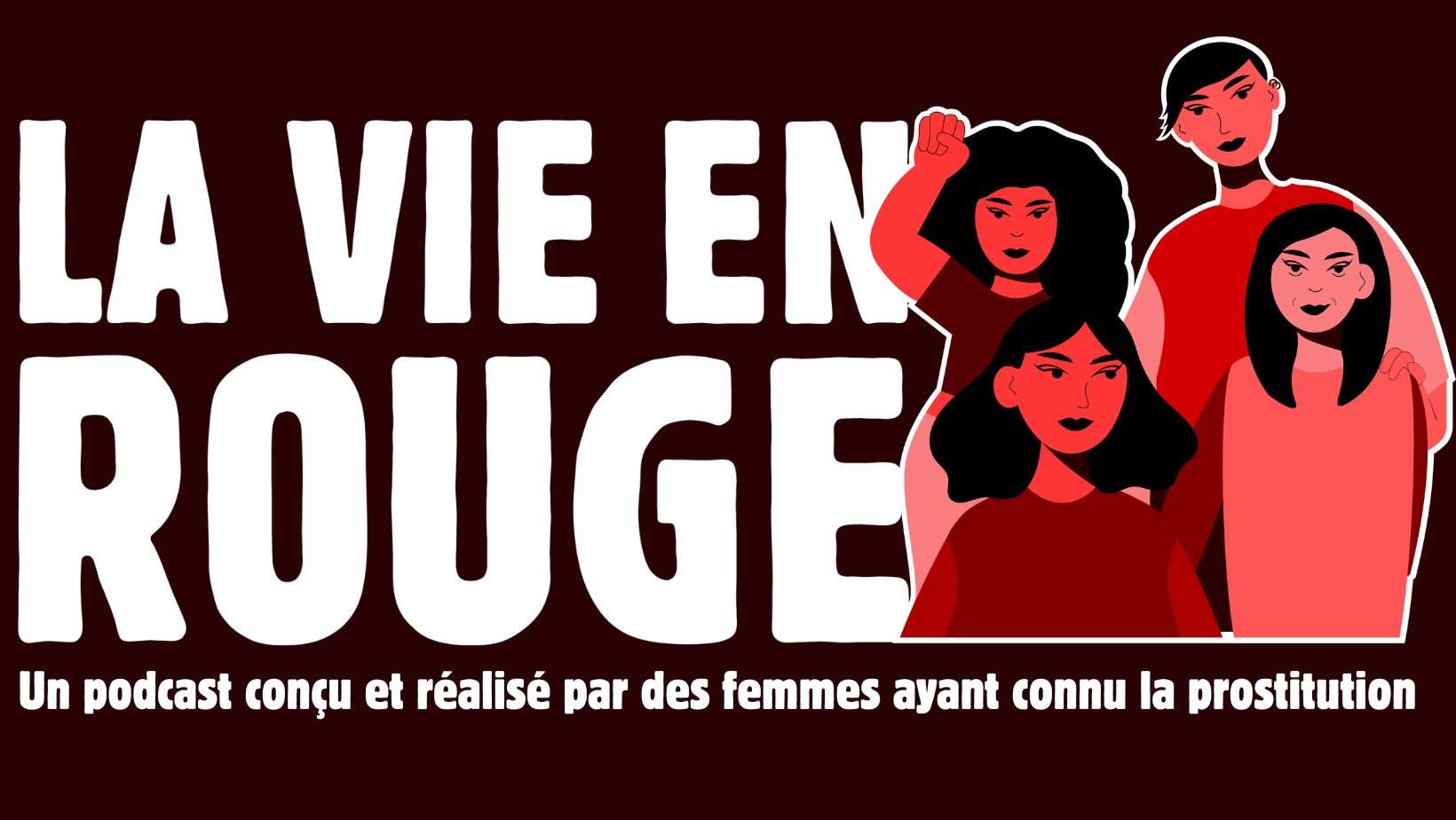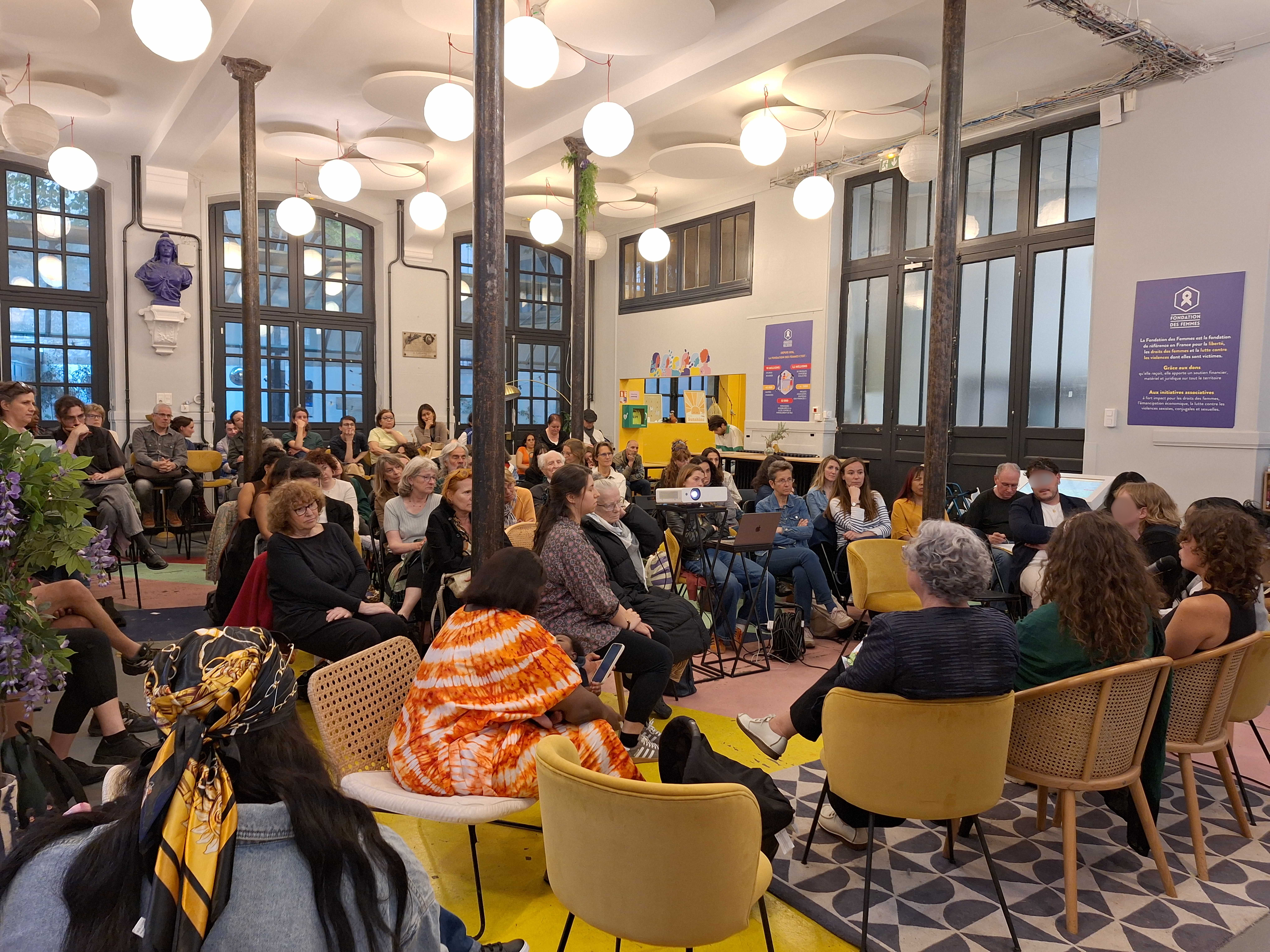The system of prostitution is gendered, targets the most vulnerable and is one of the most manifest examples of gender based exploitation and violence.
Sarah Benson is the chair person of CAP International. 3 years after it was founded, the efforts of the Coalition for the Abolition of Prostitution are starting to give fruit, both on the international and national levels.
What are the goals of CAP international ?
CAP is the Coalition for the Abolition of Prostitution. We are an international organization created to support building a network of advocates who recognize the exploitation of prostitution and who are experiencing the direct effects of prostitution through our frontline actions. What is unique about CAP compared to some of the other networks with whom we collaborate is that we are all working on national basis on the issue of prostitution and supporting thousands of individuals through our services. What we want is to support the message and the experience from the frontline to influence postivite policy developments which will reduce the harm and exploitation of prostitution. The system of prostitution is gendered, targets the most vulnerable and is one of the most manifest examples of gender based exploitation and violence.
From our frontline experiences we also build a network to advocate. Many frontline organizations find it difficult to put resources to advocacy because of the very little money they have. At the same time they are the ones who know and see the impact of policies on the vulnerable people which they support. So the model of CAP is to support those doing frontline work at the domestic level to enhance their own policies both in their own countries and to do it more effectively on the national level.
What impact has CAP international already had ? How is the abolitionist international advocacy going at present time ?
CAP is still a very young organization but it has done already incredible work due to and exceptional very tiny executive team working very effectively with the members. I think the impact for such a small organization with such very small ressources has been really extraordinary and I think there is great potential to develop more.
At this moment in time we have some very strong actors in the international movement which really recognizes the fundamental harm of the sex trade. Particularly the « survivor movement » which we strongly support and we stand alongside in solidarity. The profile of abolition rises with some countries including France and my own country Ireland, but this not an easy space. We have limited ressources and those want to preserve the status quo or even to make it more favourable to have prostitution as a business are very strong also.
There is a very strong pushback because the commercial sex trade is worth billions and billions of euros. There are very heavily resourcing organizations that will push for much more libertarian policies which talk about individuals rights to sell sex and buy sex, and choose not to acknowledge the harm of the system and the harmful impact on the majority of those who are prostituted.
What are the main current international issues ? Why such importance of the question of language surrounding prostitution ?
I will speak there as the CEO of one of the member organizations of CAP, Ruhama, which has been running 30 years. At Ruhama we don’t use the word « prostitutes », because we recognize that we are working with women and human beings and their experience of prostitution is just one component of their lives as a whole person. But neither do we use the word sex workers because for us when you look objectively at the international definition of dignified work, prostitution cannot fit. And when you look at the experiences of those in prostitution, the very transaction of prostitution almost fully fits the definition of sexual harassment. If you talk of making it something of a regular job -and that is what the language of sex work is trying to promote, it simply objectively can’t be done, based on the experience of what is required to be in prostitution.
There has been a strong push for some decades which is originated in the pornography industry in the United States to try and use such language of sex work and make it seem more normalized to obliviate the harm that is inherent to prostitution. This push is about protecting the business interest and not the individuals involved. Unfortunately that is something that is now pushing into mainstream and the press will use it on the basis that they feel, in good faith, that they are using the destigmatizing language. But when we speak with survivors, and when we speak especially to victims of sex trafficking, they say this was not work, that this was rape, every single time ! So I think we need to be very very careful not to use the language which erases the harm that so many experience.
What is the problem with UN bodies at present ?
Some of the UN bodies use this language of sex work now. Before, they did not but they have been lobbied very heavily by organizations who have had the funds to promote this language.
The language of sex work is nowhere accepted in human rights law, and in none of the binding conventions.
On the contrary, we have reference very clearly to the exploitation of prostitution in the 1949 Convention which emphasizes the exploitation not only of trafficking but of prostitution itself. We would strongly advocate that the UN agencies should use the only accepted language and the ILO (International Labour Organization) is a very large UN body which we would be very concerned is sanitizing and normalizing exploitation by both putting prostitution under the umbrella of sex work and also more recently starting to articulate sex trafficking as being a form of forced labour as opposed to the legal word which is trafficking for the purpose of sexual exploitation.
These are things that we are advocating very much for to the the extent that when we were in New York for the Commission on the Status of Women (CSW), we met directly with the Secretary General to raise our concerns in this regards.
What is the position of the trade unions on the debate ?
Some of them are our strongest advocates. If I speak specifically of the Irish experience where we advocated for the possibility to decriminalize the person in prostitution however support the criminalization of those who prostitute others and of those who drive the demand which is the sex buyers, we had enormous support from the union. Because they clearly recongized that prostitution is not dignified work and that as a labour movement they could not advocate for fair safe working conditions in an environment that is based entirely on inequality and a lack of safety for those involved.
We know that where you have unions that have identified as sex workers movements there is a bizarre combination of sometimes academics with individuals who may identify as sex workers, but also you have the pimps ! In no other union that I am aware of you have the management and the worker together.
This is the other problem with the language of sex work coming back to the previous question. A person who runs a brothel can identify as a sex worker ; a person who runs a sex shop can identify as a sex worker . It is not always a person who is in prostitution and this makes it very unclear who is lobbying.
What do you think of the #metoo movement ?
The metoo movement has shown enormous potential to reduce the sexual harassment and assault. It has been articulated in such enormous numbers and volume it has amplified women’s experience. At the beginning we did not see much reference to prostitution but when we talk about sexual harassment, there is almost no better example of sexual harassment than the experience of women in prostitution. What we were pleased to see is that, as the movement progressed we are seeing included the voices of prostitution survivors.
Rachel Moran in Ireland adressed an event recently in response to a rape trial very much centered around the metoo experience. Even at the United Nations, one of the very first women who publically accused Harvey Weinstein, the actress Mira Sorvino, spoke passionately and unequivocally of connecting prostitution and the metoo movement. I think these are powerful statements of solidarity with hundreds of thousands of women and girls who don’t have a voice and who would certainly be standing if they could and say metoo about their experience in prostitution.
Can you tell us more about the implementation of the Abolitionist law in Ireland one year after it passed ?
One year on is a short time. We have not seen a huge change because there has not been much implementation of the law yet. The police are looking at the way to use most effectively the legislation as it is framed.
At the moment, most of the population are not aware that the law has changed. So we are pushing very much for the law to be better known and implemented. It is not a law about locking away sex buyers : it is a fine, not a big penalty. It is about deterring those buyers who would not do something that is against the law. It is also about this normative effect of a social message that repositions the women in prostitution away from the criminal perspective which is often where people will perceive them to be and to put the buyer in the picture.
If it is known that it is not ok for anyone to purchase access to another person that will only reinforce the message of equality and of encouraging consent in all sexual transcactions. It is a key in the fight for equality between men and women.
The police have show a real willingness even before the law. We worked with them on a change of ; there have been good movements to reposition persons in prostitution in the caterogy of vulnerable persons, taking a much more victim-centered approach instead of a criminal approach. How the police can target the sex buyers or the pimps, but in the other hand to have them take the message that they must not target the person in prostitution, The law supports this.
Now we need time.




